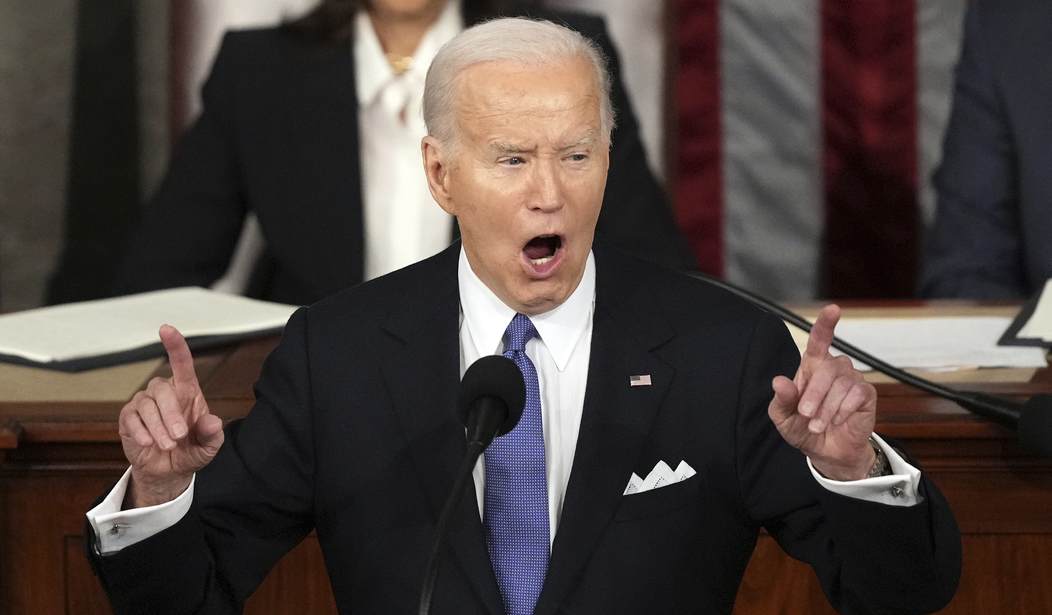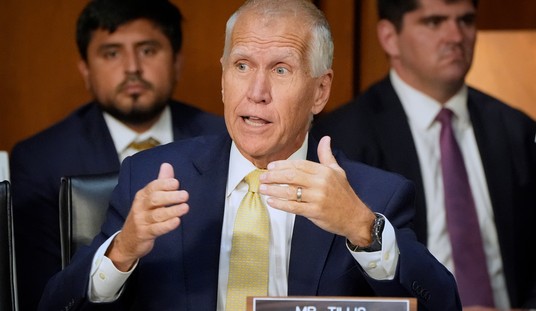Joe Biden has been in office for more than three years, and for two-and-a-hal of those years the economy was catastrophically bad. This was after he and the Democrats in Congress passed $5 trillion in "stimulus" money. Biden called the money an "investment." Indeed it was — in his re-election campaign.
Teachers, union members, special interest groups of all stripes, and a rainbow of minorities all came in for a slice of the $5 trillion pie. Those groups are now all backing his re-election effort.
All that spending proved to be the catalyst that unmoored prices from the stability they had enjoyed for two decades and sent them off into the stratosphere. The government says the inflation rate in 2021 was 9%. That's one subjective number. Importantly, the Consumer Price Index (CPI) does not include the cost of borrowing money. If it did, the rate would be closer to 18% in 2022.
I mention inflation because, in essence, it's the ballgame for Biden. And you can tell how frustrated he and his supporters in the media are because a high percentage of Americans don't agree that inflation isn't a problem anymore.
A recent Gallup poll found that 63% of voters say the state of the economy is getting worse and 45% think it’s already “poor.” This is with inflation at 3.1% and jobs plentiful.
Americans are already experiencing pain at the grocery store, the gas pump, and with other daily expenditures. But have you tried to buy a house recently? Or finance the purchase of a car? The cost of borrowing money is at least three times what it was in 2020, leaving many consumers unable to afford purchases that were previously well within their reach.
Noted economist and economic writer Veronique de Rugy could enlighten Biden and his supporters about the apparent disconnect between a "good" economy and people's unhappiness.
One reason, many have speculated, is that while the rate at which prices are rising might have slowed considerably, prices remain very high. Food and rent in particular are still expensive. These prices are felt everyday by Americans when they pay for their housing and go to the supermarket.
Only that’s not all. A new study from the National Bureau of Economic Research by economists Marijn Bolhuis, Judd Cramer, Karl Schulz, and Larry Summers finds that a change in the method used to estimate inflation today, compared to the method used in the 1980s, might well cause an underestimation of the true level of inflation.
In 1983, the government changed the way it calculated the Consumer Price Index. Many economists at the time argued that including the cost of borrowing in the CPI skewed the results too much. Instead, the government based its housing inflation calculation on what a homeowner would charge to rent his home out.
There was another change in 1998 that ditched car payments, leading to another kind of disconnect: the inflation that consumers are feeling in their gut is a lot higher than what the government says it is.
As Mr. Summers notes, measuring inflation the pre-1983 way helps explain “70% of the gap in consumer sentiment we saw last year.” Not surprisingly, Americans have a better sense of the state of the economy and their daily lives than the economists who focus mostly on data, models, and indexes for information about the world.
I assume this paper by Mr. Summers and co-authors will revive the debate about how we should measure inflation. John Cochrane, over at the Grumpy Economist Substack, observes that to answer this question properly, you have to ask first what you’re trying to measure:
“The new way is closer to right, if the question is to measure changes in the cost of living right now for the average person. … Most people live in older houses with fixed mortgages, so higher prices and mortgage rates for new houses don’t affect them. People who rent don’t care.”
But Cochrane is talking about the esoteric arguments of economists. The American voter only cares about what they feel in their gut. And their gut is telling them that everything is too expensive.
Voters hate being told they don't know how good they've got it. It makes them feel as if politicians and pundits are saying they're too stupid to understand their own personal finances.
That's not a way to win an election.









